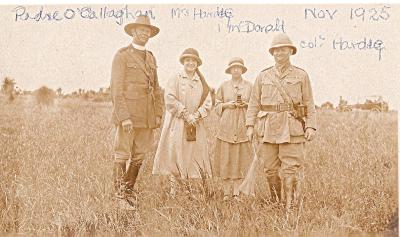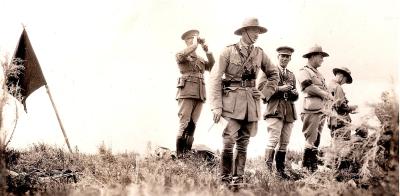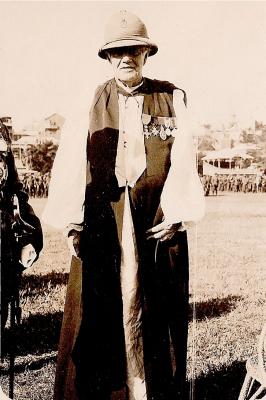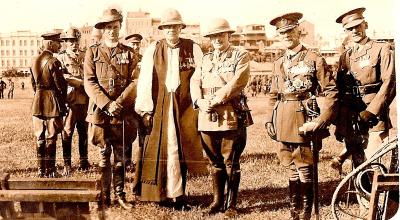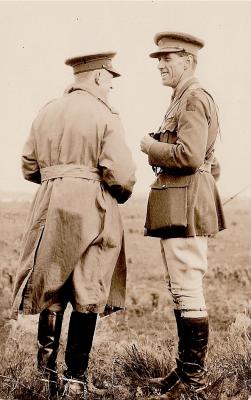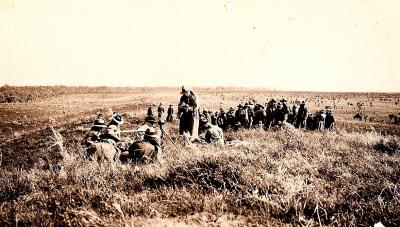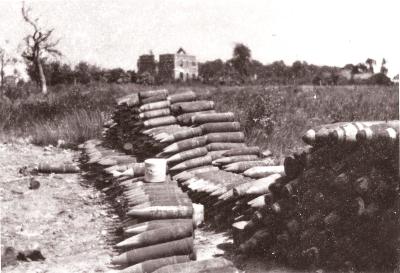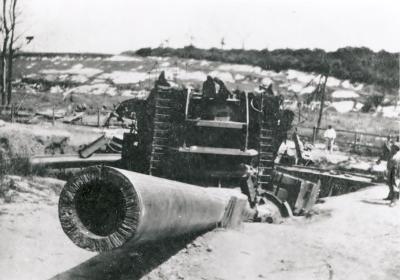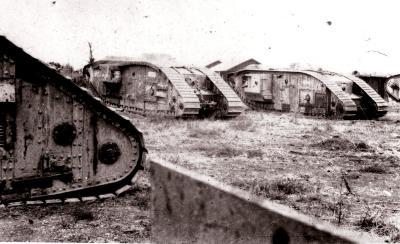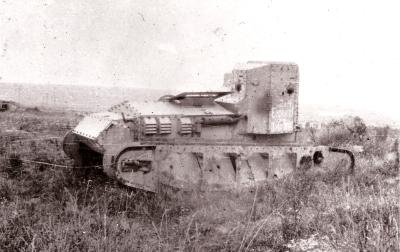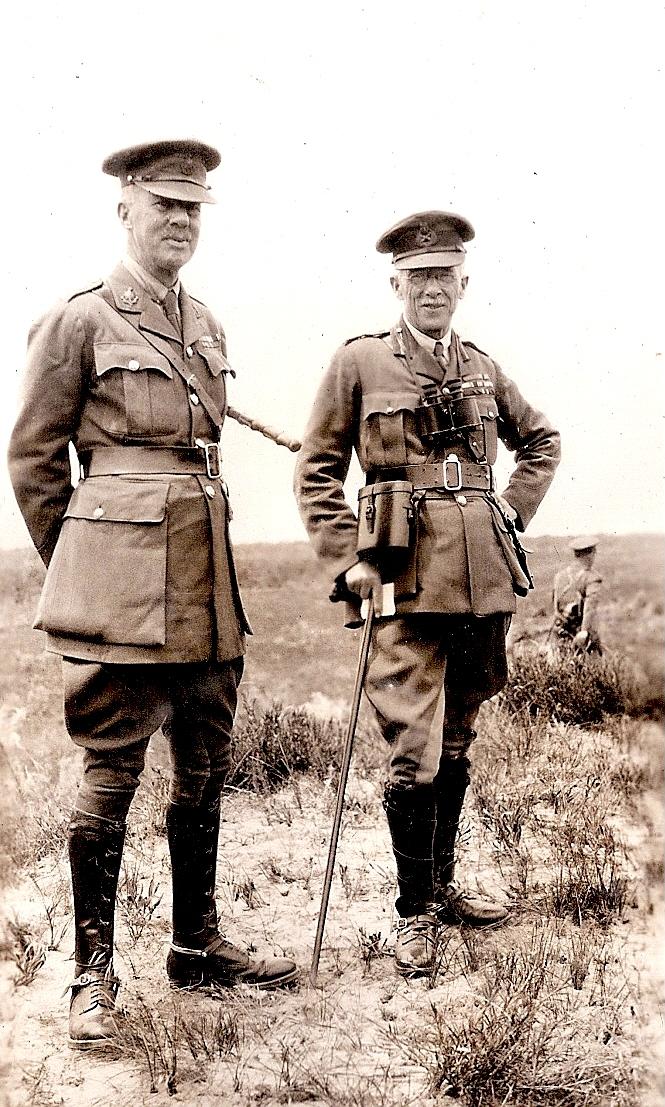Interwar, Australia, Western Australia, Rockingham Camp, HOBBS, CAMPION, 1929
1935Sir J Talbot Hobbs and Sir William Campion at Rockingham artillery practice
The location of the Army camp appears on early maps as a pair of narrow road reserves within a Commonage or Common Reserve 1485 – a large reserve that extended roughly between Wellard Road and Anketell Road. This section of town common land was utilised by the army during WW1 and WW2, as well as the open spaces of unoccupied bushland to the east of the township, which was considered a good training ground for both men and horses.
The artillery also made use of the bare sandhills around Warnbro Sound as a practice ground, and left there many unexploded shells, not retrieved until the 1980s.
The Radar Detection Huts located nearby (on the south side of Wellard Road) are associated with this army camp, and it is believed that the place was a campsite for the military personnel who operated the radar surveillance site.
During the 1950s and 1960s the site was occupied by a nightclub, the Ding Dong.
Details
Details
Sir William Robert Campion (1870-1951) was born on 3 July 1870 in London. He became a member of the London Stock Exchange at the time of the Western Australian mining boom of the 1890s. During World War I, Campion was colonel commanding the 4th Battalion of the Royal Sussex Regiment a t Gallipoli.
A Liberal Unionist in politics, he twice unsuccessfully stood for the House of Commons before being returned at a by-election in June 1910; he held his seat till 1924 as a strong advocate of economic and defence co-operation within the British Empire.
In June 1924 Campion was appointed governor of Western Australia. Back-bench supporters of the prime minister, Ramsay MacDonald, complained of an appointment from the Conservative Party, but from October 1924 to June 1931 Campion worked with Labor and Nationalist premiers alike in harmony during a period without major political crises.
Bald with prominent blue eyes, Campion was regarded as the pattern of an English gentleman; he and his wife were highly popular. They travelled widely in Australia and he was particularly active in the Toc H Society. He presided with dignity over the State's centennial celebrations in 1929.
Australian Army Museum of Western Australia
Australian Army Museum of Western Australia
Other items from Australian Army Museum of Western Australia
- Interwar, Australia Western Australia, HARDING, 8 Battery, 1925
- Interwar, Australia Western Australia, 8 Battery, 1925
- Interwar, Australia Western Australia, RILEY, 1925
- Interwar, Australia Western Australia Perth, 1925
- Interwar, Australia Western Australia Perth, 1925
- Interwar, Australia Western Australia, MITCHELL, 8 Battery, 1925
- Interwar, Australia Western Australia Rockingham, 8 Battery, 1925
- World War 2, Australia Western Australia, 10 Australian Light Horse, 1940
- World War 1, Europe, Western Front, German Artillery,1917
- World War 1, Europe, Western Front, France, Amiens, 1917
- World War 1, Europe, 1917
- World War 1, Europe, France, Villers Bretonneux, 1918
